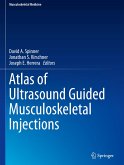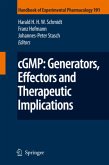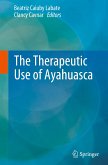Justinius Kerner, a German medical officer and poet, was the first to realize that botulinum toxin potentially might be useful for therapeutic purposes. Kerner made this observation in 1822, but he did not call the toxin "botulinum toxin. " Instead, Kerner called it the substance in "wirkenden stoffes," which translates to "bad sausages. " Kerner realized that there was a "fat poison" or "fatty acid" within sausages that produced the toxic effects that we now know as botulism. Nearly a century would pass before the bacterium producing the toxin would be isolated and the toxin ultimately renamed "botulinum toxin. " As farsighted as Kerner was, it is doubtful that even he could have predicted just how much potential therapeutic punch was packed within his wirkenden stoffes. It was not until 1978, more than a century and a half after Kerner's prediction, that Dr. Allan Scott received Food and Drug Administration approval to test botulinum toxin type A in human volunteers. We do not yet have a comprehensive understanding of precisely how botulinum toxin works in the human body or how our bodies fully respond to the toxin. We do know that it temporarily paralyzes muscle by inhibiting the release of acetylcholine, and it also appears to inhibit the release of other neurotransmitters.
Hinweis: Dieser Artikel kann nur an eine deutsche Lieferadresse ausgeliefert werden.
Hinweis: Dieser Artikel kann nur an eine deutsche Lieferadresse ausgeliefert werden.
From the reviews:
"This book presents many of the clinical uses of the relatively new drug, botulinum toxin. ... the book attempts to cover nearly all uses of the medication known to the assorted authors, including potential treatments for which there is little peer-reviewed literature. The purpose is to provide an overview of this medication, and present clinical scenarios in which the drug might be an appropriate choice. ... The target audience should be clinicians (physicians and therapists) ... ." (Ross Bogey, Doody's Review Service, January, 2008)
"This book presents many of the clinical uses of the relatively new drug, botulinum toxin. ... the book attempts to cover nearly all uses of the medication known to the assorted authors, including potential treatments for which there is little peer-reviewed literature. The purpose is to provide an overview of this medication, and present clinical scenarios in which the drug might be an appropriate choice. ... The target audience should be clinicians (physicians and therapists) ... ." (Ross Bogey, Doody's Review Service, January, 2008)







